Why Minerals Matter and 4 Minerals That Play Key Roles in Strengthening and Balancing the Body!
These 4 Power Minerals Play Key Roles in Strengthening and Balancing the Body!
Subscribe to my YouTube Channel for more healthy recipes, lifestyle tips and more!
Affiliate Disclosure & Privacy Policy (please review our complete policy here): we use affiliate links and analytics on our website, social media posts and newsletter which utilize cookies placed on your browser to track sales activity. This post is NOT sponsored but may contain affiliate links. Please review our complete privacy policy here. Thank you for your support! These statements have not been evaluated by the FDA and should not be considered medical advice or treatment. Please consult your personal health provider before making any changes to your diet or lifestyle.
Like vitamins, minerals are an important group of micronutrients that help keep the body in balance and free of disease. There are two types of minerals which are vital for various body processes: macro minerals, like
- calcium,
- iron,
- magnesium,
- phosphorus, and
- chloride are generally required in larger amounts by the body;
and trace minerals like
- boron,
- zinc and
- copper which the body needs in smaller amounts.

One of the best ways to obtain an adequate amount of minerals in the diet is to focus on a variety of whole foods. Magnesium, calcium, phosphorous and iodine are 4 key power minerals that can help strengthen and balance the body.
Here are some keys from Functional Nutrition to add these 4 Key Power Minerals into your diet for Optimal Health!
Magnesium
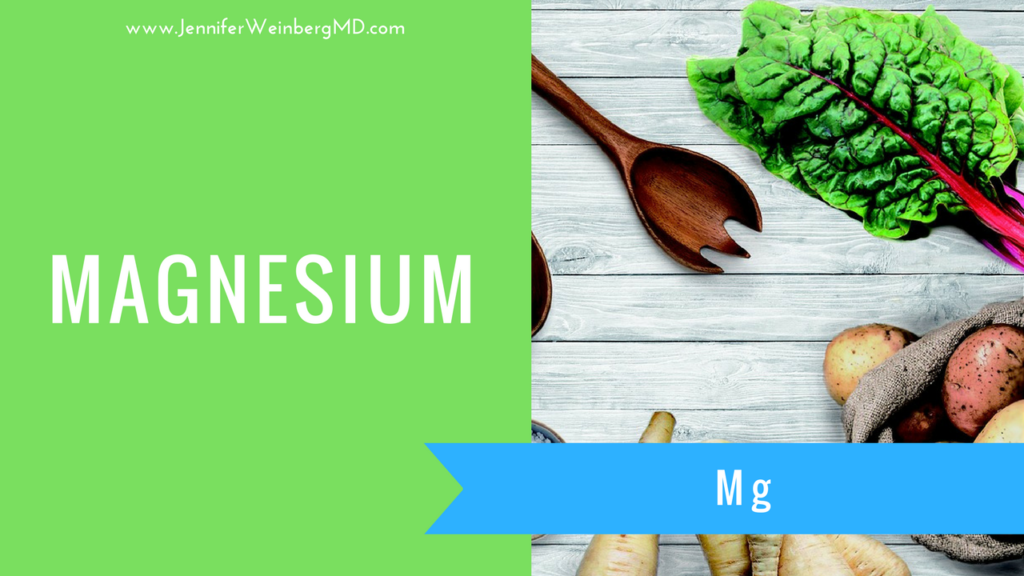
Magnesium is a key mineral which is essential for cellular health. It serves as a critical component of over 300 biochemical functions in the body. It is often thought of as the relaxation mineral since it helps calm irritable, crampy and stiff tissues and mental states.
Your body absorbs magnesium through the gastrointestinal tract in the small intestine and then utilizes it or stores it for future use. Excess magnesium is excreted from the body by your kidneys into the urine.
Magnesium is also needed to regulate calcium, potassium and sodium levels and supports the formation of proteins, fatty acids and antioxidants like glutathione. Therefore, magnesium is a key mineral which is needed to help balance the stress response, assist with restful sleep and ensure proper muscle function.
Conditions associated with magnesium deficiency include:
- cramps,
- insomnia,
- muscle pain,
- anxiety,
- high blood pressure,
- type 2 diabetes,
- fatigue,
- migraines and
- osteoporosis.
Those with chronic illness or digestive disease are especially at risk for magnesium deficiency.
Seafood, almonds, pumpkin seeds, spinach and other leafy greens are all good sources of magnesium.
Leafy greens are an especially rich source of magnesium since they contain chlorophyll. Chlorophyll (affiliate link) is similar in structure to human hemoglobin, but while human hemoglobin has iron at the center to help transport oxygen in the blood, plants have magnesium. Other foods which are rich in magnesium include apricots, quinoa, almonds and dark chocolate.
Calcium
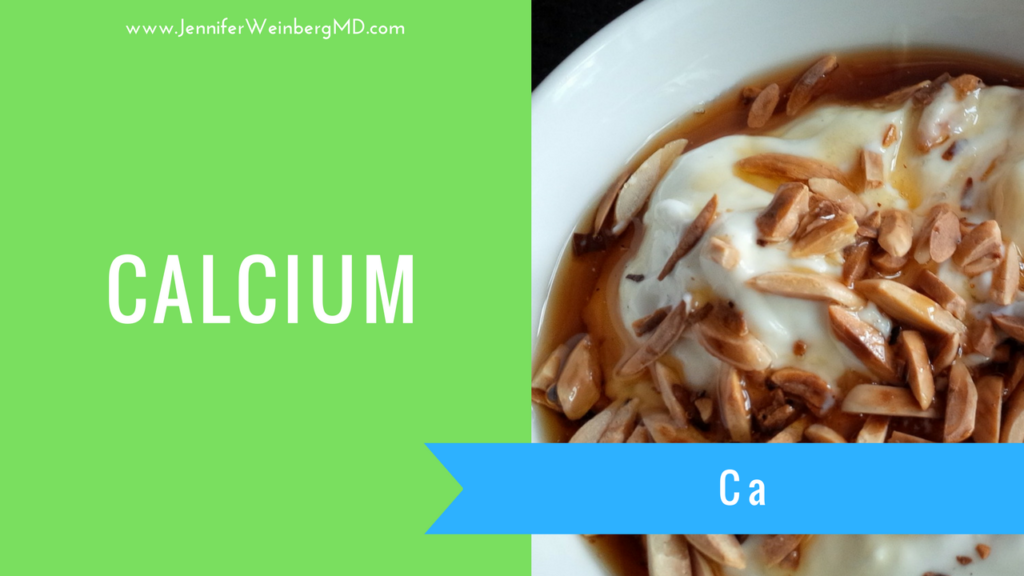
Calcium is another power mineral with many functions throughout the body. While the first thing that you may think of when you consider calcium is that it helps form and maintain healthy teeth and bones, calcium is also important for proper muscle contraction, heart rhythms, balanced cholesterol levels and nerve transmission.
Calcium is a very abundant mineral in the body, constituting about 2% of your total body weight! Around 99% of calcium is found in bones and the teeth while the other remaining 1% being stored throughout other body tissues.
Given these roles, a calcium deficiency can contribute to symptoms such as:
- brittle, weak bones;
- problems with proper blood clotting;
- weakness and fatigue;
- delays in growth and development; and
- problems with blood pressure and heart rhythms.
Magnesium is crucial for calcium absorption and these two minerals work together in the body. Aside from dairy products like milk and yogurt for those who include them in their diets, calcium can also be found in plant foods including:
- leafy greens, like collard greens and kale,
- okra,
- sesame seeds,
- almonds and
- a variety of beans.
Phosphorus
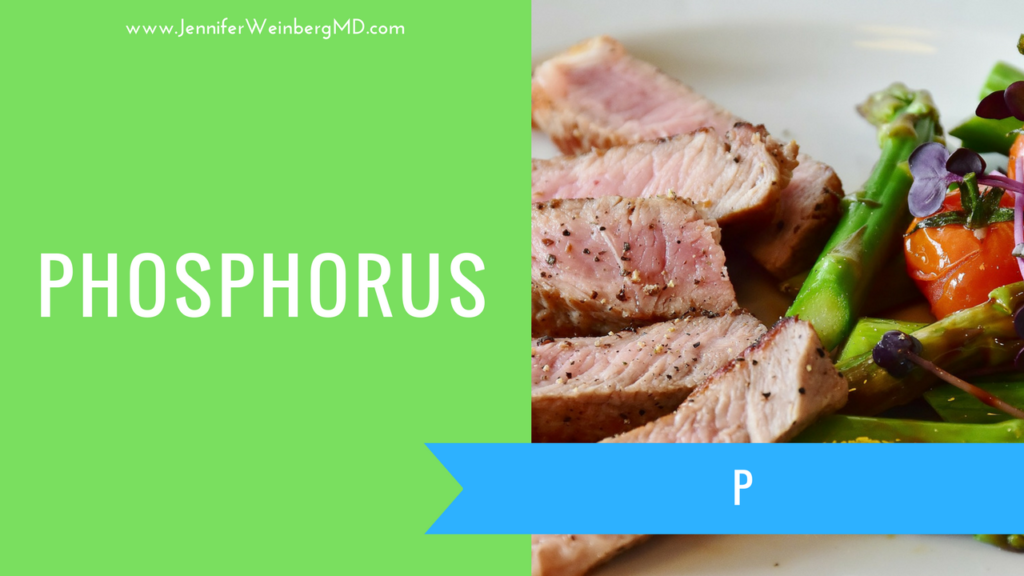
After calcium, phosphorus is the second most abundant element in the human body. About 85 percent of the phosphorus in your body is stored in your bones, with smaller quantities present in muscle tissue and the blood.
Phosphorus is an essential mineral which is involved in hundreds of cellular activities including keeping essential organs like the brain, heart, kidneys, liver and muscles functioning properly and helping to balance hormones. You need phosphorus to keep your metabolism running and to produce adequate energy in the form of adenosine triphosphate (ATP). Phosphate, a salt which is derived from phosphorous, is an important compound for synthesizing the major macronutrients – proteins, fats and carbohydrates.
A deficiency in phosphorous can manifest with:
- bone health issues,
- changes in appetite,
- numbness and tingling,
- weight changes,
- anxiety and
- growth issues.
Phosphorous is a naturally-occurring mineral found in the soil and water and is also added to many packaged foods to improve appearance, shelf life and flavor. It is important to maintain the proper balance of calcium, magnesium, vitamin D intake and phosphorous.
Whole foods which provide phosphorus include:
- Sunflower seeds
- Beans
- Tuna
- Turkey breast
- Grass-fed beef
- Almonds
- Brown rice
- Potatoes
- Broccoli
- Eggs
Iodine
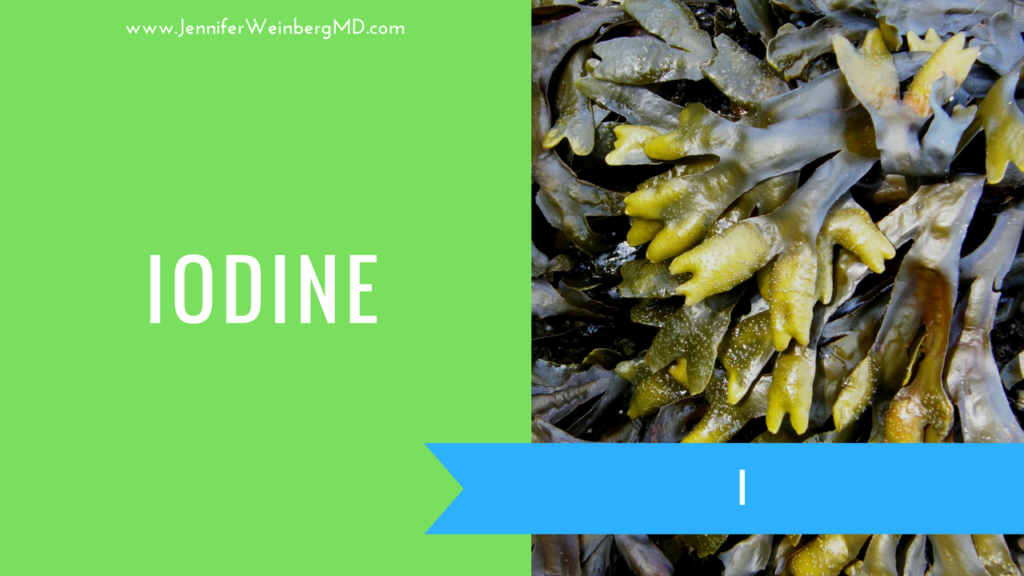
Iodine is a trace mineral which is essential for energy production due to its role in thyroid health. This mineral is an essential component of the thyroid hormones, triiodothyronine (T3) and thyroxine (T4) which regulate the metabolic activities of most cells and play a vital role in early growth and development of most organs, especially the brain.
Iodine also plays an important role in regulating cell growth and proliferation by assisting in the destruction or apoptosis of mutated cells that could become cancer. For example, science shows that iodine-rich seaweed may inhibit the growth of breast tumors. Iodine can also help keep cells healthy by assisting with detoxification.
Inadequate or imbalanced intake of iodine may contribute to insufficient production of these thyroid hormones, which adversely affects the muscle, heart, liver, kidney and the developing brain. In fact, iodine deficiency is one of the main cause of impaired cognitive development in children worldwide.
Overall, a healthy balance of iodine is required, with each individual having different needs. For example, those with Hashimoto’s thyroiditis or particular cases of hypothyroidism should discuss their iodine intake with their physician to avoid health issues.
Some of the richest whole foods sources of iodine include:
- Seaweed (affiliate link)
- Cranberries
- Cod
- Baked potato
- Navy beans
- Eggs
- Dried prunes

What are your favorite mineral-rich whole foods?
Have you ever looked at your mineral balance?
Let me know in the comments below!
 If you enjoy this post and want more, check out these free Simple | Pure | WholeTM recipes and wellness inspiration! If you have not already joined, I would love to have you as part of my free Insider’s Community where you will receive wellness resources, news and opportunities along with a special free gift! Get your FREE Chapters from The Whole Cure when you join for free and purchase your copy of the paperback or Kindle edition today on Amazon (affiliate links)!
If you enjoy this post and want more, check out these free Simple | Pure | WholeTM recipes and wellness inspiration! If you have not already joined, I would love to have you as part of my free Insider’s Community where you will receive wellness resources, news and opportunities along with a special free gift! Get your FREE Chapters from The Whole Cure when you join for free and purchase your copy of the paperback or Kindle edition today on Amazon (affiliate links)!
Your Simple Pure Whole Wellness Plan
- Glorious Greens for Great Health Virtual Workshop and Cookbook: This virtual workshop will introduce you to the facts and science about leafy green vegetables and provide simple and nutritious recipe ideas to help you easily incorporate these nutritional powerhouses into your diet. You will discover vibrant health through knowledge and flavorful real food recipes!
-
Breathe: Guided Relaxation & Breathing Exercises to Help You Find Your Whole Cure is now available! This special resource will support you in bringing The Whole Cure (affiliate link) to life! The individually-available breathing exercises and guided relaxation experiences (starting at $0.99!) can be used anywhere, at any time of day. Try using them when you feel panic, stress, anxiety or just want a few moments of calm in your day. They are also helpful for coping with pain and helping the body prepare for rest and relaxation.
- The Whole Cure: 52 Essential Prescriptions for Overcoming Overwhelm, Reclaiming Balance and Reconnecting with a Life You Love! (affiliate link) Commit to yourself with 52 simple yet profound stress management techniques that you can work on throughout the year to change your mindset and find greater peace, calm and balance!
Simple Pure Whole Opportunities!
NOTE: this post may contain affiliate links for products that I use myself and frequently recommend to my clients. These products and the information provided should not be considered medical advice. AFFILIATE DISCLOSURE: Amazon offers a small commission on products sold through their affiliate links. Prices are exactly the same for you if your purchase through an affiliate link or a non-affiliate link. Thank you!
Medical Disclaimer: Information provided in this post and related resources is for informational purposes only. Jennifer Weinberg is not providing medical advice, diagnosis or treatment information. The information is NOT intended as a substitute for the advice provided by your physician or other healthcare professional. Every body is unique so be sure to check with your health care professional before making any dietary or lifestyle changes taking any medication or nutritional supplement or using any treatment for a health issue. Do not use this information provided for diagnosing or treating a health problem or disease. If you suspect you have a medical problem please contact your health care provider promptly and do not disregard professional medical advice based on anything on this website. This website and related resources are not intended to diagnose, treat, cure or prevent disease and do not create a doctor-patient relationship between you and Jennifer Weinberg. These statements have not been evaluated by the FDA. These products are not intended to diagnose, treat, cure, or prevent any disease.
This post was shared with: Home Matters Link Party
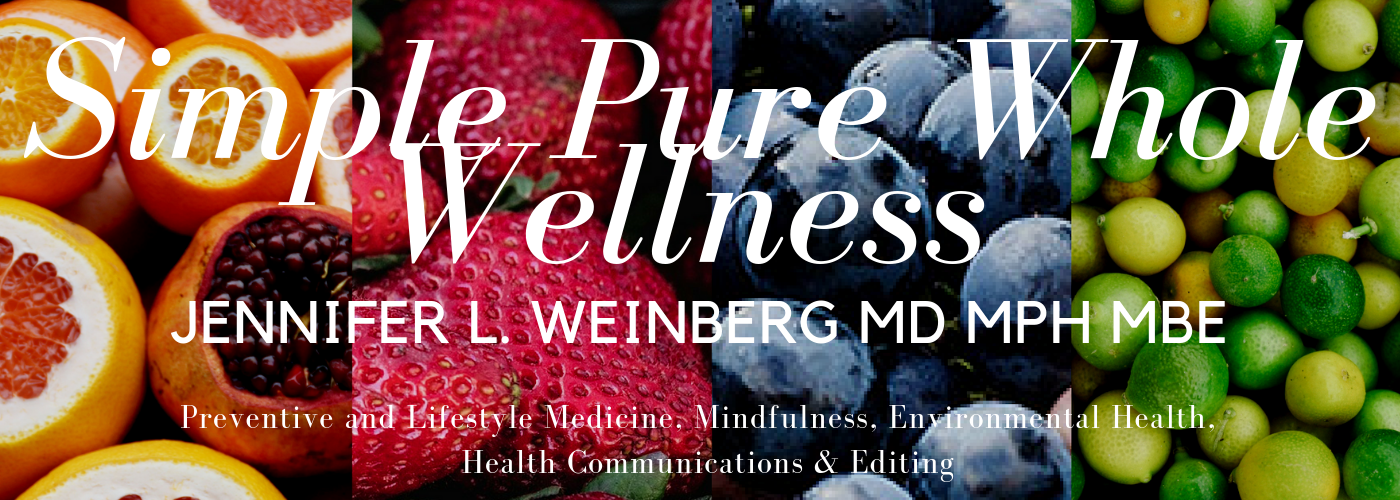


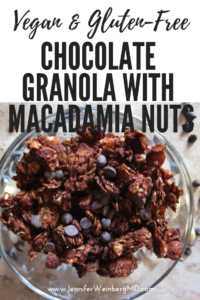

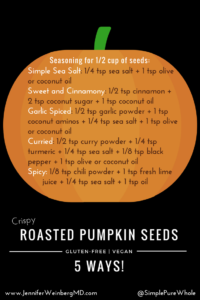
Comments